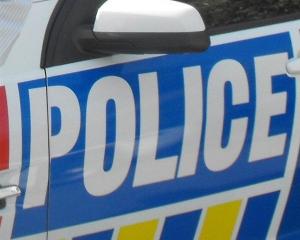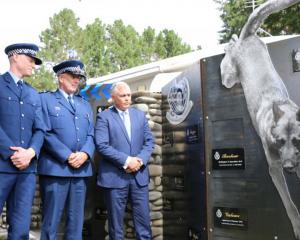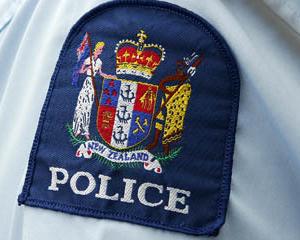Supt Burns confirmed yesterday he had asked Dunedin area staff to cut 18 positions to create three six-person proactive policing teams.
The changes must all be made within the existing resources.
It will be the biggest restructuring of Dunedin police in years, and critics - fearing positions will be chopped from suburban police stations - are already calling it a "crock".
Former Port Chalmers police officer Trevor Johnson said cutting any positions from places like Port Chalmers was "devastating" and made a lie of the community policing concept, while Keith McFadyen, of Brighton, said the Saddle Hill Community Board would fight to keep two officers stationed at Green Island.
Supt Burns said a working group made up of Dunedin police staff had analysed performances down to a station level and would present its report on options as to where the 18 positions would be cut from, on October 1.
Any changes would no doubt create "some noise" within police and the public, but he was certain they were needed to get the crime rate down.
It was clear the present system was not working because Dunedin's crime rate had remained more or less the same for years, he said.
"Just because we have been doing things this way for 10 years, doesn't mean it's the right way. We need to do something to significantly reduce the rate of victimisation."
Frontline staff from Port Chalmers, South Dunedin, North Dunedin and Green Island police stations have been tipped for centralisation in the restructuring, but Supt Burns said he would not know the options he had until he received the working party's report.
He had already confirmed no stations would be closed.
No-one would lose a job, but some would have different jobs, possibly including a return to shift work, he said.
"Even though people do not lose a job, it does create anxiety, but at the end of the day we've also got a responsibility to taxpayers and the community."
The three new centrally based teams would be an amalgam of staff from youth aid, the CIB, traffic and general duties and consist of a sergeant and up to five people.
The teams would be separate from emergency response groups. Their work would be carefully planned to target specific crime problems identified through intelligence and analysis of the criminal environment.
"It's policing by fact, rather than gut feeling."
Supt Burns said he had seen the value of operating pro-actively in other places he had worked.
In Invercargill - where a proactive policing team had been in place for a year - the crime rate went down 16% last year and was tracking for a 17% decrease this year.
He believed any restructuring in Dunedin would not affect callout response times, especially because in many parts of the city the majority of crime took place outside times staff were on duty.
Although people might think it was reassuring to have a police officer in their community, it was not reassuring to have one sitting in a station the whole time, and increasing the visibility of police in the community was also part of the project, he said.
Where people had concerns about the loss of officers with local knowledge, they should consider the figures.
If crime rates were rising, and resolution rates in places where officers had a high level of local knowledge were still low, it was clear even local knowledge was not working to reduce crime.
But Mr Johnson, who is a member of the Chalmers Community Board, called that a "crock".
"It may be tomorrow that that little bit of local knowledge might save someone's life."
The entire proposal, which he believed involved reducing staff at the two-man Port Chalmers station, made a lie of the "community policing" approach.
"This is the reverse of community policing."
Mr McFadyen, the Saddle Hill Community Board chairman, felt there was a serious threat to the two positions at the Green Island station.
"This thing goes beyond crime fighting. It's the loss of people who know the community, who know who to contact in a disaster. It's not until things go wrong that you find exactly how beneficial it is to have someone in law and order who knows the area," he said.








